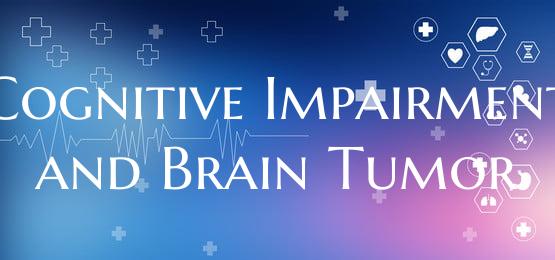
Cognitive Impairment and Brain Tumor
Introduction: Cognitive impairment refers to difficulties with cognitive functions such as memory, concentration, and decision-making. When it is associated with a brain tumor, the impact can be profound and complex. In this article, we will explore the relationship between cognitive impairment and brain tumors, including the potential causes, symptoms, and treatment options.
Understanding Cognitive Impairment in Brain Tumor Patients: Brain tumors can directly impact cognitive function due to their location and effects on surrounding brain tissue. The type, size, and location of the tumor can affect different cognitive domains, leading to a range of symptoms such as memory loss, confusion, difficulty concentrating, and language problems. Cognitive impairment can significantly affect a patient's quality of life and day-to-day functioning.
Causes of Cognitive Impairment in Brain Tumor Patients: Cognitive impairment in brain tumor patients can result from various factors, including the tumor's mass effect on the brain, compression of surrounding structures, infiltration of healthy brain tissue, and treatment-related side effects such as surgery, radiation, or chemotherapy. Additionally, psychological factors like stress and anxiety can also contribute to cognitive difficulties in these patients.
Symptoms of Cognitive Impairment in Brain Tumor Patients: The cognitive symptoms experienced by brain tumor patients can vary depending on the tumor's location and size. Common symptoms may include:
1. Memory problems, including difficulty remembering recent events or learning new information. 2. Attention and concentration issues, leading to poor focus and multitasking abilities. 3. Language problems, such as difficulty finding words or understanding speech. 4. Impaired executive functions, impacting decision-making, planning, and problem-solving. 5. Changes in personality or mood, including irritability, apathy, or emotional lability.
Treatment and Management of Cognitive Impairment in Brain Tumor Patients: Managing cognitive impairment in brain tumor patients requires a multidisciplinary approach involving neurologists, neurosurgeons, oncologists, neuropsychologists, and rehabilitation specialists. Treatment options may include surgery to remove the tumor, radiation therapy, chemotherapy, and targeted therapies. Cognitive rehabilitation programs, such as memory training, cognitive exercises, and psychotherapy, can also help improve cognitive function and quality of life for patients.
Conclusion: Cognitive impairment in brain tumor patients is a complex and challenging issue that requires comprehensive evaluation and individualized treatment strategies. By understanding the relationship between cognitive function and brain tumors, healthcare providers can better support patients in managing their symptoms and improving their overall well-being. Early detection, appropriate interventions, and ongoing support are essential in addressing cognitive impairment in individuals with brain tumors.